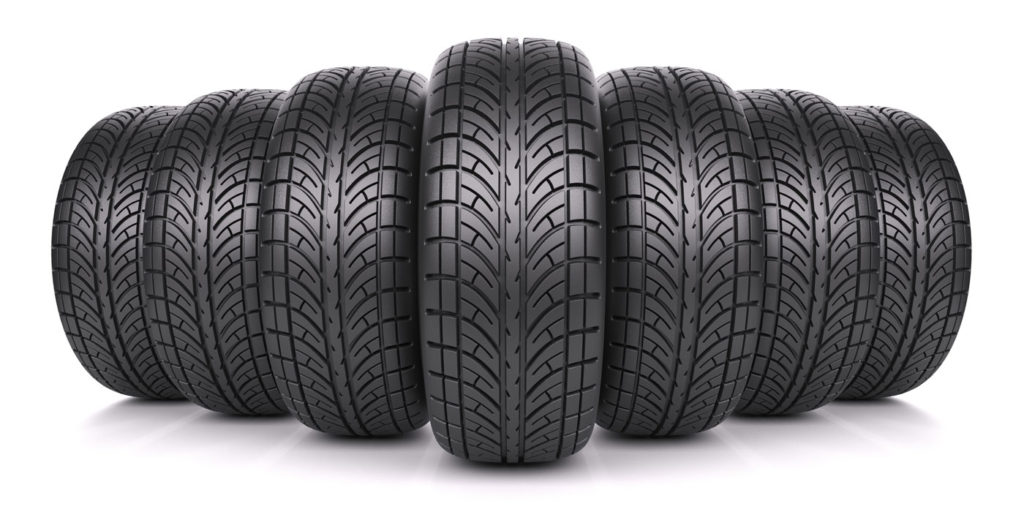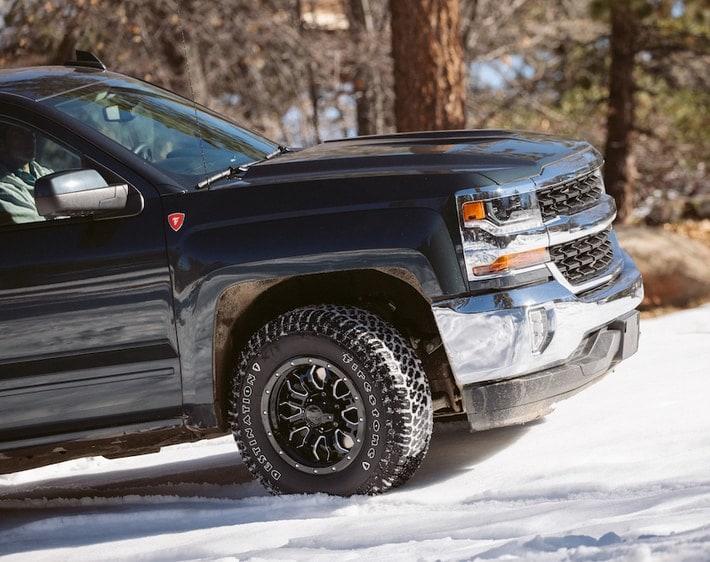Light truck tires are designed for carrying heavy loads and traversing rough terrain, while passenger tires prioritize a comfortable ride and fuel efficiency. Choosing the right type of tire for your vehicle is crucial for optimal performance and safety.
Light truck tires are designed for pickup trucks, suvs, and other light-duty vehicles that carry heavy loads or frequently drive on unpaved roads. They have a higher load-carrying capacity and a more robust construction than passenger tires, making them more durable and resistant to punctures.
On the other hand, passenger tires are intended for cars and other small to midsize vehicles that prioritize fuel efficiency, ride comfort, and low noise. Passenger tires typically have a lower profile and a softer tread compound than light truck tires, allowing for better handling and traction on paved surfaces. Ultimately, the choice between light truck and passenger tires depends on your vehicle’s intended use and the driving conditions in your area.

Credit: www.tirereview.com
What Are Light Truck Tires?
Definition Of Light Truck Tires
Light truck tires, commonly known as lt tires, are specially designed for light trucks, suvs, and vans. These tires offer superior strength, durability, and load-carrying capacity than passenger tires, allowing them to handle heavier loads and tough terrains. Light truck tires are categorized as commercial tires as they mainly cater to commercial drivers and fleet owners who demand high performance and dependability.
Key Characteristics And Features
Light truck tires have several distinct features and characteristics that set them apart from passenger tires. Some key features include:
- Stiffer sidewalls: Light truck tires have reinforced sidewalls that offer greater stability and prevent the sidewalls from collapsing even under heavy loads.
- Tread design: Light truck tires come with deeper tread patterns that provide excellent traction on both wet and dry surfaces.
- Larger sizes: Most light truck tires come in larger sizes than passenger tires, and they have a higher load rating and speed rating.
- Durability: Light truck tires are built to last. They are designed to withstand heavy loads, rough terrains, and heavy-duty usage.
Types Of Light Truck Tires Available
There are four main types of light truck tires available in the market:
- All-season tires: These are designed for all seasons and offer excellent wet and dry performance.
- All-terrain tires: These tires are designed for off-road terrains, but they also perform well on highways.
- Mud-terrain tires: These are designed for extreme off-road terrains such as mud, rocks, and sand.
- Highway tires: These are designed for highway use and offer a smooth ride and excellent handling.
Benefits Of Light Truck Tires
There are several benefits of using light truck tires, including:
- Durability: Light truck tires are built to last long, even under heavy loads and rough terrains.
- Load-carrying capacity: Light truck tires are designed to handle heavier loads than passenger tires, making them ideal for commercial drivers and fleet owners.
- Versatility: Light truck tires are available in a variety of types, allowing drivers to choose the right tire for their vehicle’s specific needs.
- Improved handling and traction: Light truck tires offer better stability, handling, and traction, providing drivers with better control over their vehicles in challenging driving conditions.
Light truck tires are an essential part of every light truck, suv or van. They offer superior strength, durability, and load-carrying capacity than passenger tires, making them ideal for those who demand exceptional performance and dependability from their tires.
What Are Passenger Tires?
Light Truck Tires Vs Passenger: What Are Passenger Tires?
When it comes to choosing tires, one of the critical factors to consider is your vehicle’s intended use. Passenger tires, as the name implies, are designed for lightweight vehicles such as cars and small suvs that are used for daily driver purposes.
In contrast, light truck tires are constructed for larger vehicles such as trucks and vans that are used for commercial or heavy-duty purposes. In this blog post, we will focus on passenger tires and discuss their definition, characteristics, types, and benefits.
Definition Of Passenger Tires
Passenger tires are specialized tires created explicitly for lightweight vehicles that are primarily utilized for transportation purposes. They are designed to provide a smooth, quiet, and comfortable ride while ensuring stable handling and optimal fuel efficiency.
Characteristics And Features
The following are the main characteristics and features of passenger tires:
- Tread patterns: Passenger tires have a unique tread pattern that maximizes their contact with the road, reduces road noise, and enhances comfort.
- Tread depth: Passenger tires typically have shallow tread depths that provide a compromise between adequate traction and extended tread life.
- Rolling resistance: Passenger tires are designed with low rolling resistance to minimize fuel consumption and reduce carbon emissions.
- Load capacity: Passenger tires come in various sizes capable of handling different load capacities for different types of vehicles.
- Speed ratings: These tires also come in different speed ratings to ensure optimal handling and safety at different maximum speeds.
Types Of Passenger Tires Available
Passenger tires come in various types such as:
- All-season tires: These versatile tires are an excellent choice for drivers who experience all four seasons, providing excellent traction in both wet and dry conditions.
- Winter tires: Specialty tires designed for snowy and icy weather conditions. They feature deeper grooves and specialized traction patterns to maintain grip in adverse weather conditions.
- Summer tires: Ideal for hot and dry conditions, summer tires provide excellent handling and maximized dry braking and cornering capabilities.
Benefits Of Passenger Tires
The following are the benefits of investing in quality passenger tires:
- Fuel efficiency: The low rolling resistance of passenger tires helps reduce fuel consumption, resulting in improved fuel efficiency.
- Enhanced comfort: Passenger tires provide a comfortable driving experience, ensuring a smooth ride.
- Cost-effective: Investing in good quality passenger tires can translate to more miles per gallon, resulting in long-term savings on fuel and maintenance costs.
- Safer driving: Passenger tires provide improved traction, better handling, and shorter stopping distances, resulting in a safer driving experience.
Understanding your vehicle’s intended use plays a crucial role in selecting the right type of tire. As a daily driver, investing in high-quality passenger tires can positively impact fuel efficiency, driving comfort, and safety. So, choose a tire that suits both your driving style and budget and enjoy a smooth and safe driving experience!
Comparison Of Light Truck Tires And Passenger Tires
Light truck tires vs passenger tires: comparison of two tire types
When it comes to choosing the right type of tire for your vehicle, it is essential to understand the differences between light truck tires and passenger tires. While both types of tires may look similar, they serve different purposes, and one may perform better than the other, depending on your requirements.
Main Differences Between The Two Tire Types
- Light truck tires are designed for pickup trucks, suvs, and vans, whereas passenger tires are made for cars and minivans.
- Light truck tires typically have a higher load capacity and are more durable than passenger tires, making them ideal for heavy-duty vehicles.
- Passenger tires are designed for comfort and stability, providing a quiet and smooth ride, whereas light truck tires offer optimum performance on rough terrains.
Pros And Cons Of Each Type
Light truck tires:
Pros:
- Durable construction: The robust construction of light truck tires makes them ideal for heavy-duty applications.
- Better off-road performance: The deep treads and rugged designs of light truck tires provide superior traction on rough terrains.
- High load capacity: Light truck tires can handle heavier loads than passenger tires.
Cons:
- Stiffer ride: Light truck tires lack the smoothness and ride comfort of passenger tires due to their stiffer sidewalls.
- Higher cost: Light truck tires are typically more costly than passenger tires due to their additional features.
Passenger tires:
Pros:
- Smooth and quiet ride: Passenger tires provide a comfortable and quiet ride, thanks to their softer construction.
- Better fuel efficiency: Due to their lighter construction, passenger tires offer better fuel economy than light truck tires.
- Affordable: Passenger tires are generally more affordable than light truck tires.
Cons:
- Less durable: Passenger tires are not designed for heavy-duty applications and may wear out faster than light truck tires.
- Lower load capacity: Passenger tires have lower load-carrying capacity, which may not be suitable for heavier vehicles.
Comparison Of Features And Performance
- Load capacity: Light truck tires have a higher load-carrying capacity than passenger tires, making them ideal for larger vehicles.
- Tread design: Light truck tires have deeper treads and a more aggressive pattern to provide better off-road traction. Passenger tires have shallower treads to offer better handling and cornering.
- Durability: Light truck tires are designed to withstand heavy usage and are more durable than passenger tires. Passenger tires are not made for heavy-duty applications and may wear out faster.
- Ride comfort: Passenger tires offer a smoother and quieter ride than light truck tires, which may be stiffer and noisier due to their rugged design.
- Fuel economy: Passenger tires offer better fuel efficiency due to their lightweight design, making them ideal for daily commutes and road trips.
Choosing between light truck tires and passenger tires depends on your vehicle’s intended use and your requirements. Light truck tires are ideal for heavy-duty applications and off-road driving, whereas passenger tires offer a smooth and comfortable ride for daily commutes and road trips.
Factors To Consider When Choosing Tires
Light truck tires vs passenger: factors to consider when choosing tires
Choosing between light truck tires and passenger tires can be a difficult decision. It’s essential to consider the climate and driving conditions, driving style, vehicle usage, as well as cost and maintenance considerations.
Climate And Driving Conditions
- Consider the region’s climate when selecting tires. If you live in an area with heavy rain, you may need tires that provide better traction in wet conditions.
- If you’re located in a region with severe cold weather, snow and ice conditions, you will need snow tires specifically designed for such conditions.
- Off-road driving, heavy load carrying, and frequent towing require tires that are built to endure such challenges.
- Tire pressure is also crucial for maintaining safety in varying conditions. Make sure always to check your tire pressure
Driving Style And Vehicle Usage
- The type of driving you usually do is another factor to consider when choosing tires. High-performance tires provide better handling and cornering at high speeds, making them ideal for sports cars or performance vehicles.
- Some tires are ideal for everyday driving, providing a comfortable, quiet ride and longer tread life.
- If you operate a light truck or commercial vehicle, you’ll require tires that can handle heavy payloads, provide good traction, and endure frequent use.
Cost And Maintenance Considerations
- Larger tires tend to cost more than smaller ones. Generally, light truck tires are more expensive than passenger tires. However, selecting cheap tires may not always be cost-effective, as cheaper tires tend to have shorter lifespans and may need replacement sooner than expensive tires.
- Furthermore, it’s essential to factor in the cost of maintaining your tires. Always make sure to check the tires’ tread regularly and have them rotated and balanced periodically.
Choosing the right tires for your needs requires careful consideration of many factors. By taking climate and driving conditions, driving style and vehicle usage, cost, and maintenance concerns into account, you can make an informed decision that will ensure optimal performance, safety, and comfort for years to come.
Frequently Asked Questions Of Light Truck Tires Vs Passenger
What Is The Difference Between Light Truck Tires And Passenger Tires?
Light truck tires are built for utility vehicles and are heavier and more durable than passenger tires, which are designed for cars.
Can I Replace Light Truck Tires With Passenger Tires?
It’s not recommended to replace light truck tires with passenger tires because they may not be able to handle the weight and load capacity.
Are Light Truck Tires More Expensive Than Passenger Tires?
Yes, light truck tires are usually more expensive than passenger tires due to their heavy-duty construction and ability to withstand heavier loads.
Are Light Truck Tires Noisier Than Passenger Tires?
Yes, light truck tires are typically noisier than passenger tires due to their tread patterns and heavy-duty construction.
Can I Use Passenger Tires In Place Of Light Truck Tires For Better Fuel Economy?
No, using passenger tires instead of light truck tires to save on fuel economy is not recommended as they may not be able to handle the weight and load capacity of the vehicle.
Conclusion
Light truck tires and passenger tires may seem similar, but there are significant differences that must be taken into account when choosing which ones to install on your vehicle. Light truck tires are designed for heavier loads and rougher terrains, while passenger tires are meant for a comfortable ride on smoother roads.
It’s important to keep in mind that installation of a tire that is not designed for your vehicle can not only affect performance, but it can also impact safety. Ultimately, your decision should be based on your vehicle’s needs and your driving habits.
You should consider aspects like road conditions, driving distance, weight capacity, and handling. While both types of tires have their benefits, it’s essential to choose the right type of tires for your needs so that you can experience the best performance and safety possible.
With careful research and a consideration of all factors, you can make an informed decision on the best tires for your specific vehicle and driving needs.

